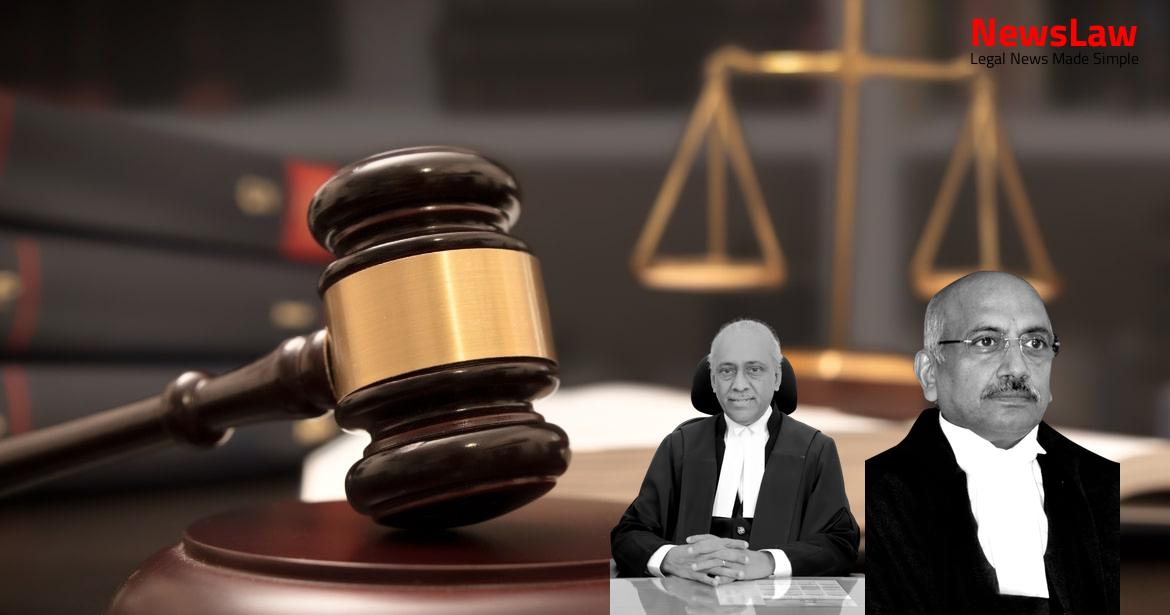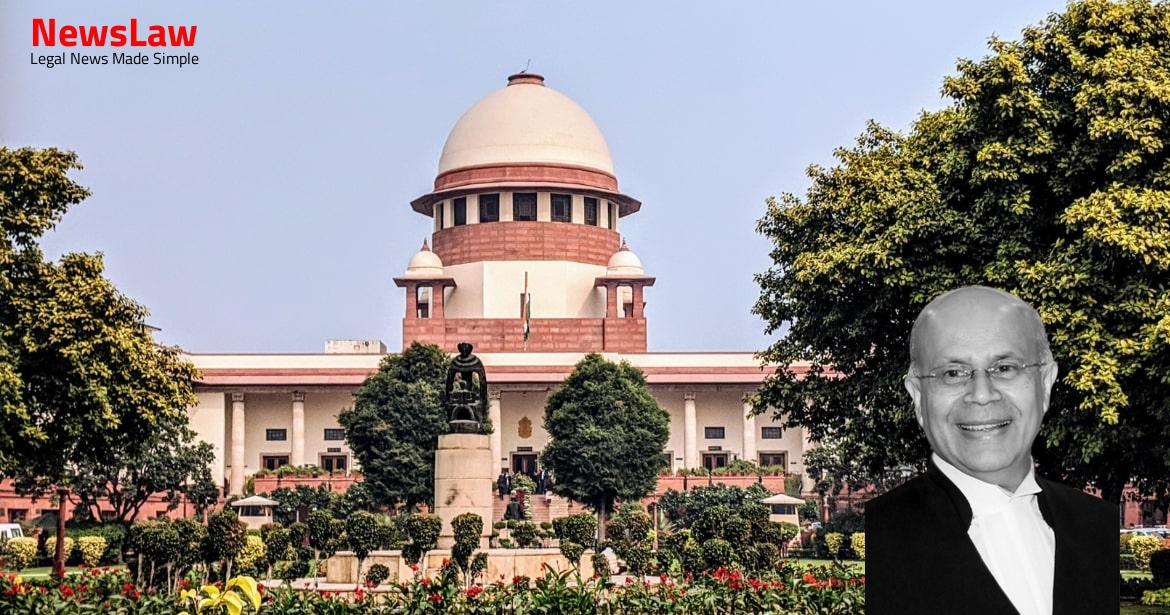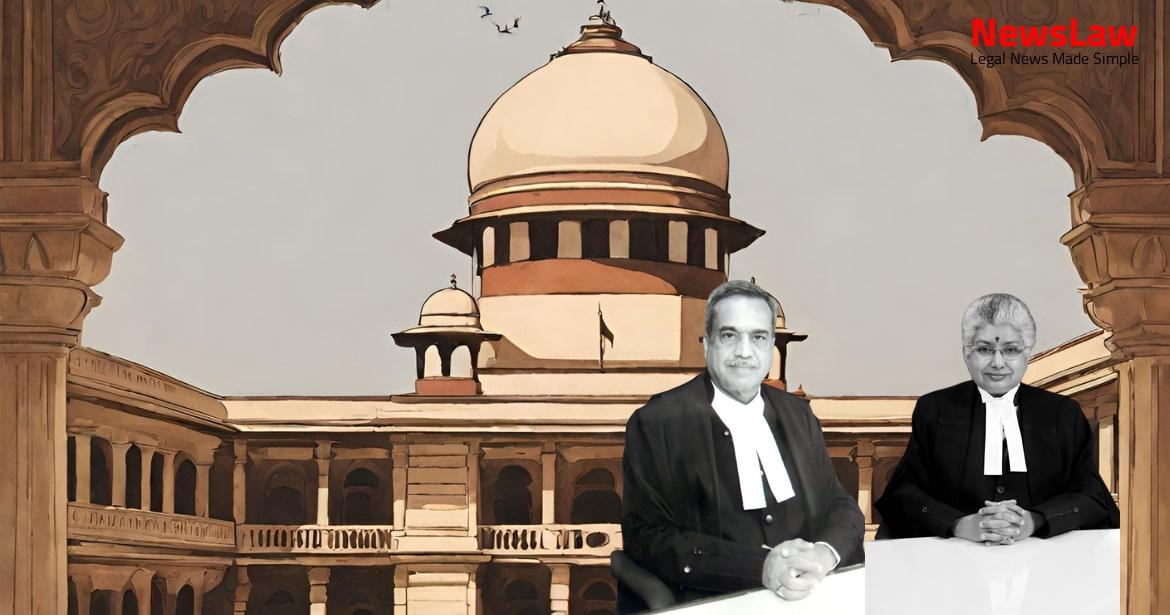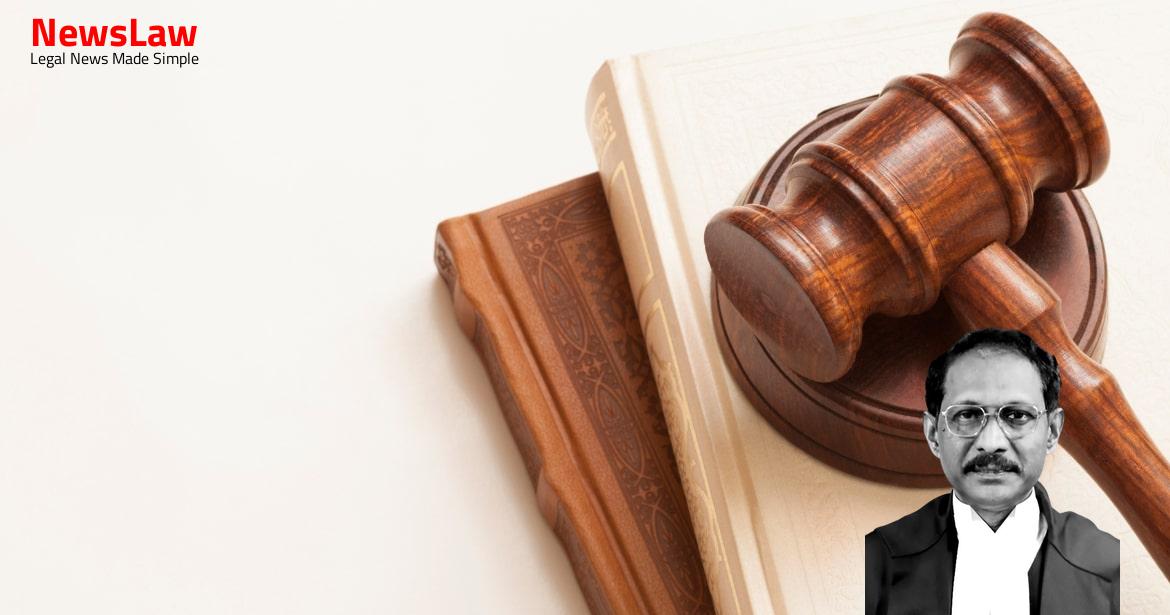Explore a significant legal case involving a dispute over land surrender and possession rights. The court’s thorough legal analysis provides insights into the complexities of the case, focusing on crucial aspects such as voluntary surrender of possession, interpretation of possession under the law, and implications of the Repeal Act. Stay tuned for a breakdown of the key legal principles at play in this fascinating case!
Facts
- Upon knowing of the surrender of land, Principal Chief Conservator of Forests requested the government to allot the land to the Forest Department for an Urban Nursery Ecological and Awareness Centre.
- Government issued G.O.MS. No 297 Revenue on 08.07.2002, cancelling the allotment to Snake Park Trust and granting it to the Forest Department.
- Notices and notifications under various sections of the Act were issued for surrendering the excess land, with dates ranging from 1980 to 1981.
- Nagarathinam Ammal surrendered the land on 11.11.1980 and requested compensation.
- An enquiry was initiated for determining compensation for the surrendered land.
- A draft statement indicated the excess land to be surrendered by Nagarathinam Ammal.
- The High Court allowed a writ petition based on reports indicating the acquired land was vacant, enclosed by a compound wall.
- The appellants challenged the High Court’s decision in an intra-court appeal.
- The Repeal Act of 1999 was enacted, leading to a writ petition by Nagarathinam Ammal’s children declaring earlier proceedings under the Act void.
- Allotment of land to Forest Department was mentioned in a Government Order along with the compound wall enclosing the land.
- The Trust surrendered the land back to the Government due to inability to fulfill objectives.
- Compensation was determined and paid to Nagarathinam Ammal in installments.
- Excess vacant land was later allotted to Madras Snake Park Trust.
- Appellants filed for a review with a petition for condonation of delay in filing.
- The appellants challenged the refusal of the Division Bench of the High Court to condone the delay in filing the review petition.
- They also challenged the substantial order passed in the intra-court appeal on 26.10.2005.
- The Division Bench of the High Court dismissed the appeal based on the Inspection Report of the Assistant Commissioner dated 20.01.2005, stating that the land was vacant.
- The Division Bench further dismissed the application for condonation of delay on 26.04.2006, citing insufficient cause for the delay.
Also Read: Legal Analysis on Withdrawal from Land Acquisition
Arguments
- Mr. Agrawala contended that a mere statement about keys being left with the Trust may not constitute delivery of possession.
- The appeals were filed by the State of Tamil Nadu and officials in the Department of Urban Land Ceiling against the Madras High Court’s order and subsequent refusal to condone the delay in seeking a review.
- Key details about the Tamil Nadu Urban Land (Ceiling and Regulation) Act, 1978 were provided, including the dates of partial enforcement and a brief background of a specific case involving Smt. Nagarathinam Ammal.
Also Read: Interpretation of Section 56(2) of Electricity Act
Analysis
- The High Court erred in granting the benefit of Section 3(2) of the Repeal Act to the respondents.
- The land owner voluntarily surrendered and delivered possession as per her letter dated 11.11.1980.
- The respondents executed a General Power of Attorney in favor of S. Sundararaman, who claimed to have paid the entire sale consideration.
- The High Court did not consider crucial evidence such as the letter dated 11.11.1980 and department records.
- The claim of possession by the land owner was based on a compound wall enclosing even the land sold to the Trust.
- The decision in Gajanan Kamlya Patil case does not support the respondents as there was no voluntary surrendering of possession.
- The land owners’ actions of creating Power of Attorney and entering agreements after the writ petition but before it was allowed raise questions.
- The repeal of the principal Act will not affect the vesting of any vacant land under Section 11(3) if possession has been taken over by the State Government or authorized person.
- If possession of land deemed to have vested in the State Government under Section 11(3) has not been taken over, it shall be restored to the person in respect of whom the land was declared surplus, provided compensation amount has been refunded to the State Government.
- For restoration of land under the Repeal Act, the person must prove that possession was not taken over.
- The term ‘possession’ has been analyzed in various judicial pronouncements, but this case does not involve complex interpretations of possession.
- In Gajanan Kamlya Patil case, the court mentioned that only officials’ affidavits were available as evidence of the landowner voluntarily surrendering possession.
- No other documents were presented to support the claim of voluntary surrender of possession by the landowner.
- The land owners and two third parties engaged in champerty and are not entitled to relief from the court.
- The land owners have relinquished their right to continue the litigation.
- Multiple legal proceedings, including civil, criminal, and arbitration cases, have arisen between the respondents and third parties.
- There is evidence of a coordinated effort by a group of realtors to unlawfully acquire land already in the possession of the government.
Also Read: Legal Analysis: Surveyor’s Report and Insurance Claim Discrepancy
Decision
- C.A.No.5885 of 2010 is allowed
- Judgment of the learned Single Judge and Division Bench are set aside
- Writ petition of the respondents-land owners is dismissed
- All applications for impleadment are dismissed
- Other applications stand closed
- Third parties are considered mere interlopers with no right to question the proceedings under the Act
- No orders are necessary in C.A.No.5881 of 2010, hence it is closed
Case Title: STATE OF TAMIL NADU Vs. M.S. VISWANATHAN (2021 INSC 497)
Case Number: C.A. No.-005881-005881 / 2010



